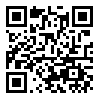Volume 4, Issue 1 (Winter 2024)
J Clin Sport Neuropsychol 2024, 4(1): 0-0 |
Back to browse issues page
Download citation:
BibTeX | RIS | EndNote | Medlars | ProCite | Reference Manager | RefWorks
Send citation to:



BibTeX | RIS | EndNote | Medlars | ProCite | Reference Manager | RefWorks
Send citation to:
Hashemi Halvaei N, Shariatmadar A, Farahbakhsh K. The Relationship Between Early Maladaptive Schemas and Copping Strategies Among Injured Athletes. J Clin Sport Neuropsychol 2024; 4 (1) : 2
URL: http://jcsnp.ir/article-1-118-en.html
URL: http://jcsnp.ir/article-1-118-en.html
1- M.Sc. in Family Counseling, Allameh Tabataba'i University, Tehran, Iran.
2- Associated Professor, Department of Counselling, Faculty of Psychology and Educational Sciences,Allameh Tabataba'i University, Tehran, Iran.
2- Associated Professor, Department of Counselling, Faculty of Psychology and Educational Sciences,Allameh Tabataba'i University, Tehran, Iran.
Abstract: (748 Views)
Background and Purpose: Injured athletes often experience significant stress. Various cognitive and emotional factors can exacerbate this stress. Understanding the relationship between early maladaptive schemas (EMS) and coping strategies (CS) is crucial for supporting injured athletes throughout their recovery process. The aim of this study was to determine the correlation between EMS and CS among injured athletes.
Method: This research employed a descriptive correlational study design. The participants included 73 injured athletes from Tehran, selected through purposive sampling. They completed the Early Maladaptive Schemas Questionnaire (Yang & Brown, 2005) and the Coping Strategies Questionnaire (Monticone et al., 2014). The data were analyzed using correlation and regression analysis in the SPSS-26 software.
Findings: The results indicated a significant correlation between EMS and CS among injured athletes. Accordingly, the scores of five schemas play a role in determining CS. Specifically, 34% of the variance in maladaptive CS and 18% of the variance in adaptive CS were predicted by EMS.
Conclusion: The findings underscore the importance of considering EMS in designing interventions to support injured athletes. By understanding the relationship between EMS and CS, it is possible to enhance injured athletes' psychological well-being and facilitate their recovery process.
Method: This research employed a descriptive correlational study design. The participants included 73 injured athletes from Tehran, selected through purposive sampling. They completed the Early Maladaptive Schemas Questionnaire (Yang & Brown, 2005) and the Coping Strategies Questionnaire (Monticone et al., 2014). The data were analyzed using correlation and regression analysis in the SPSS-26 software.
Findings: The results indicated a significant correlation between EMS and CS among injured athletes. Accordingly, the scores of five schemas play a role in determining CS. Specifically, 34% of the variance in maladaptive CS and 18% of the variance in adaptive CS were predicted by EMS.
Conclusion: The findings underscore the importance of considering EMS in designing interventions to support injured athletes. By understanding the relationship between EMS and CS, it is possible to enhance injured athletes' psychological well-being and facilitate their recovery process.
Article number: 2
Type of Study: Applicable |
Subject:
Clinical Psychology
Received: 2023/10/28 | Accepted: 2023/12/7 | Published: 2024/01/1
Received: 2023/10/28 | Accepted: 2023/12/7 | Published: 2024/01/1
| Rights and permissions | |
 |
This work is licensed under a Creative Commons Attribution-NonCommercial 4.0 International License. |





